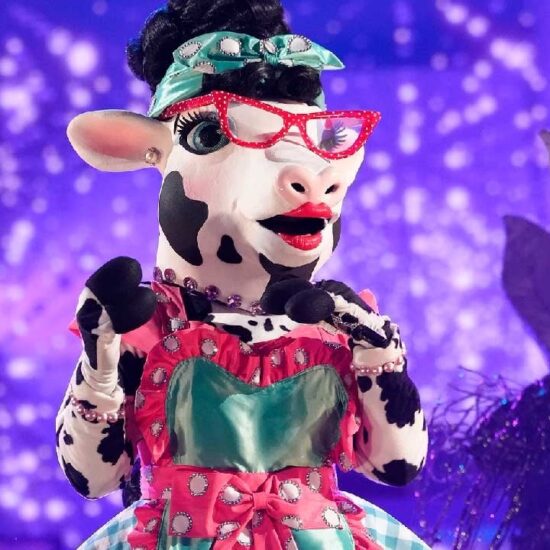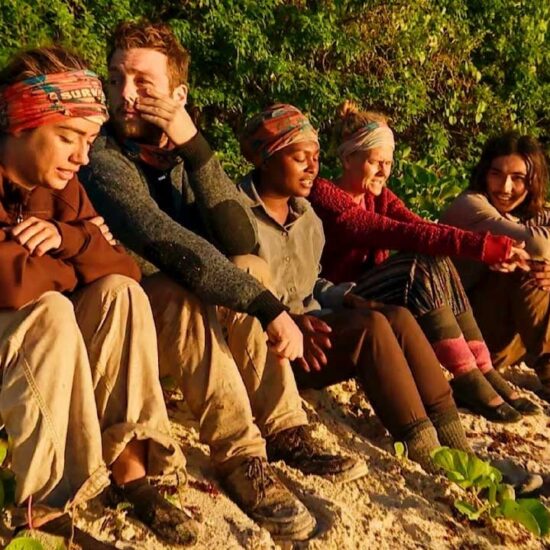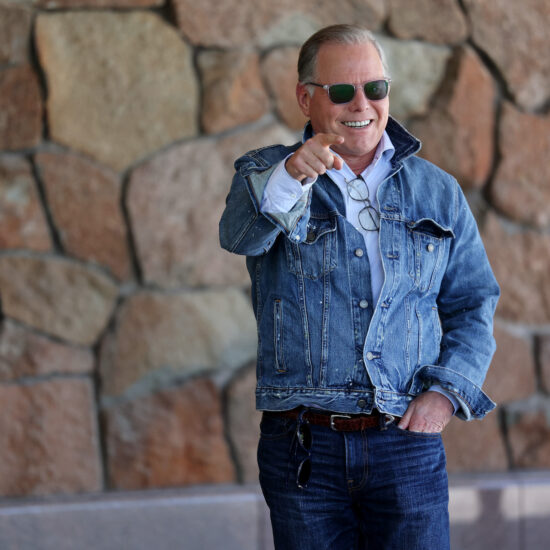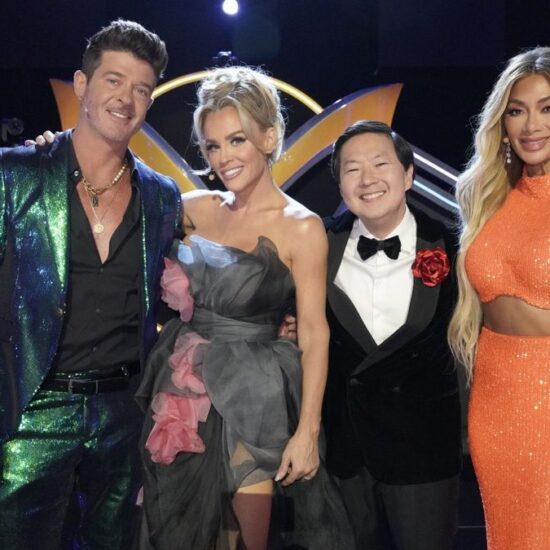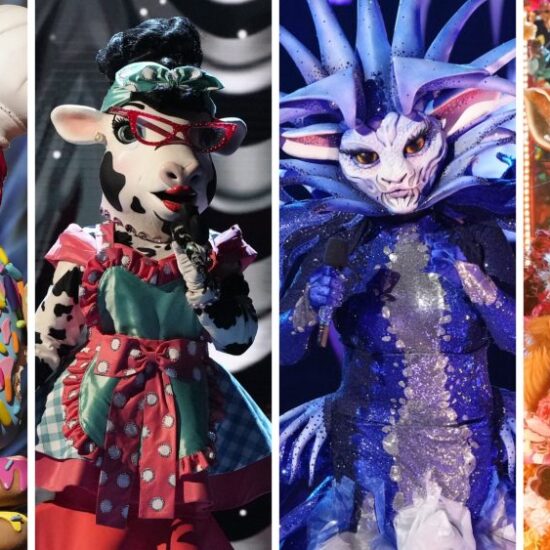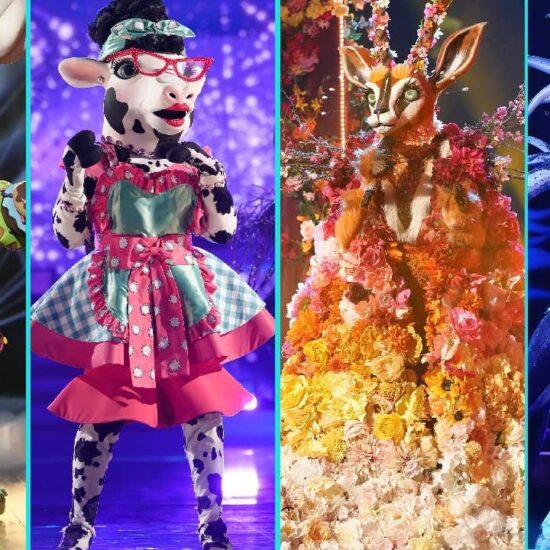
[Editor’s Note: The following interview contains spoilers for “The Last of Us” Season 1, through the finale.]
When “The Last of Us” released its third episode, “Long, Long Time,” reactions surfaced faster than fungi on an infected host. Many (including IndieWire) praised the episode for its aching love story, wherein Bill (Nick Offerman), a survivalist holed up in a makeshift fortress, and Frank (Murray Bartlett), a stranger who wanders into one of Bill’s traps, fall in love and — despite their post-apocalyptic environs — build a life together. Seeing that life unfold marks a pivot (or departure) from the original plot, tracking new characters whose story can stand on its own, even when it eventually loops back to our primary leads.
Not everyone liked it. Today’s day and age of second-screen viewing paired with snap judgements doesn’t always reward atypical TV structure, and “Long, Long Time” faced its share of backlash.
“Some people didn’t like Episode 3 because, you know, gay stuff. And then they kind of retroactively try and come up with a [different and inoffensive] reason why,” co-creator and co-showrunner Craig Mazin said in an interview with IndieWire, “[But] one of the complaints I saw was, ‘Oh, it’s just a filler episode. It doesn’t advance the story.’ And I was like, ‘I think this episode advances the story more than any other episode we have’ — because it’s not plot, it’s character. It’s the letter Bill leaves behind to Joel that powers the rest of the show.”
Saving the lesson on serialized storytelling for another time, what happens in Episode 3 matters moving forward. Through its central couple, “Long, Long Time” captures an idyllic romance. Two people find each other, love each other, and spend their lives together. But anyone who’s been in a long-term relationship knows love doesn’t make everything else easy. Bill and Frank fight. They have divergent priorities. Their main disagreement centers on Bill’s desire to protect what they have, while Frank yearns for connection; he wants to make their home beautiful, not just secure, and he wants to have friends. Over the years, they find a balance that works, but in the end, Bill may not have learned as much from his partner as he could have.
“After all that, Bill’s advice to Joel is, ‘Great, but you and I are here to murder anyone that gets close to our Frank. That’s why we are here. We’re here to protect them,’” Mazin said about the pivotal letter. “And that is romantic. You could argue it’s completely necessary. It’s also bad. That is what fascinates me about this world. That’s what fascinates me about the themes that were there from the game. And that’s what I thought about and think about all the time as we’re contemplating our next season. I don’t think we have to invent new themes. I think there’s a lot to be explored there.”
Perhaps it’s fitting that Episode 3 caused such a stir. After all, how love manifests in “The Last of Us” is one of the drama’s most challenging aspects. Each character experiences love and we see how it shapes them. Not only is Bill’s interpretation of his own love story flawed (or, at least, short-sighted), but so is Joel’s, Ellie’s, Frank’s, Kathleen’s, and more. The ways love resurfaces throughout Season 1 require the audience to reevaluate prevailing beliefs about an emotion often framed only as pure, purposeful, and good. That can be difficult, but Mazin and his team forge a path.
“To the extent that it might start to feel iterative, all I can say is it’s the problem — love is the problem,” Mazin said. “It’s the problem now. It’s the problem for all of us. And we don’t like to think of it that way, but it is. The odds are that we all will do something beautiful and sacrificial and admirable because of love. And also, all of us are going to do something terrible because of love, something destructive or violent or cruel. Because we’ve invented a word for a part of us we have no control over.”
Take Episode 5, “Endure and Survive.” Joel (Pedro Pascal) and Ellie (Bella Ramsey) are on the run from a group of rebels who recently seized Kansas City. Their leader, Kathleen (Melanie Lynskey), is caught up in a fanatical manhunt for Henry (Lamar Johnson) and Sam (Keivonn Montreal Woodard), the former she blames for her brother’s death. Kathleen’s obsession with vengeance blinds her from a very real threat, one that literally consumes her, along with her followers, by episode’s end. Aside from Joel and Ellie, no one escapes alive.
Episodes 3 and 5 work in tandem. Where one episode honors the classic virtues of love, the other examines its impurities. Both end with subtle warnings for our lead characters and Joel in particular. Kathleen acts out of love, and it gets her killed. Henry, in trying to save his own brother by selling out Kathleen’s kin, is also driven by love and pays a steep price. One could argue their love is largely selfish, whereas Bill and Frank’s was mutually beneficial, but love doesn’t abide by reason. It’s closer to instinct, and while it’s easy to empathize with each character’s motivations, it’s not so easy to justify their actions.
“So much of what this story is about is just addressing the romanticization of love head on, and exploring where it can go right and where it can go wrong,” Mazin said. “But the fact is: Love itself is immoral. It’s immoral because it doesn’t follow rules. That’s not why love is there. It has nothing to do with rules. It doesn’t live in the part of our brain that comes up with rules.”
Everything Joel and Ellie go through on their cross-country journey sets up the season finale, Episode 9, “Look for the Light”: when Joel saves Ellie, killing dozens of innocent people in the process and robbing millions more of a chance at safer, fuller lives. The sequence of events is haunting. As Joel shoots his way from one floor to the next, picking off guards in his quest to save Ellie, the slo-motion footage and somber score underline the devastating consequences of his actions; actions we’ve seen framed as heroic so many times prior.
“Joel doesn’t make a choice. If he thinks he’s made a choice, that’s an illusion,” Mazin said. “Something else inside of him that is older than the neocortex moves into action. Everybody that watches this [scene] and then has a debate is doing the exact same thing. They have an experience that is limbic, and then the words come to try and understand it, debate it, argue it, justify or condemn it — all of which is great. But to me it’s a condition. It is outside the bounds of moral discussion.”

Love may be the common bond between what your classic action hero does and what Joel does, but it’s not the end of the discussion. It’s the beginning. To Mazin, that’s part of what makes “The Last of Us” a significant endeavor. Acknowledging that there’s no right choice helps us understand ourselves better, and basing these debates around a fictional scenario is safer than living through similar events.
“I think acknowledgement leads to an understanding and theoretically, it can help us change,” Mazin said. “I don’t think that our base instincts are permanent and unchangeable. I think when we don’t understand what they are, they are permanent and unchangeable. Confrontation is essential to illumination.”
Mazin has illustrated a particular talent for crafting such confrontations in ways that audiences welcome. Whether it’s in “The Hangover” sequels, “Chernobyl,” or “The Last of Us,” his work finds avenues into difficult topics that remain widely accessible. It’s no surprise he claims there’s “nothing about the apocalypse that I find particularly interesting.” That’s not what drew him to making Neil Druckmann’s acclaimed video game his next project.
“The notion that all the things around you that constitute the firm ground beneath your feet can crumble away — it’s terrifying when that happens. But I’m always more interested in the specifics of a relationship,” he said. “The relationship can be strained by the end of the world. It can be strained by a nuclear accident. It can be strained by waking up and not remembering what happened the day before. There are different things that each scenario provides you for narrative fuel, but what always focuses me is the specifics of two people in a relationship.”
Pushing those people to a place where they’re reacting on a level beyond moral judgements, at a place where they don’t see the choice in front of them as a choice at all, that’s where great drama lies.
“And that is scary,” Mazin said. “So I like looking at scary things, obviously, and I think it’s important. I think we turn away from scary things. I think we deny that they’re there all the time. That’s another part of the human condition — just a permanent state of denial — but I like looking at that because parents will immediately do immoral things to save a child, and other people will applaud them for it. But it’s still immoral. And that’s what’s fascinating to me.”
“Nobody is gonna see ‘The Last of Us,’ think about it, and then say, ‘Yeah, you know what? If I have a choice between my kid dying or 15 kids dying, that’s gonna be an easy choice now,’” he said. “But I think, I hope, that some people — at least when they have feelings that lead so quickly to thoughts that they didn’t recognize there was a feeling underneath the thought — may say, ‘You know, I wonder if the reason I’m angry at these people is not rational, but rather simply, it’s protective.’ Because when we say like, ‘Oh, well, I love my kid more than I love your kid,’ I’m also saying, ‘I love the person that looks like me more than the person that doesn’t look like me.’ Uh oh! Uh oh! The more we can at least confront these things and examine them safely in an inoculated way, perhaps some good comes of this.”
“At a minimum, at least we’re entertained,” Mazin said, laughing. “But who knows? Maybe people get a little bit more outta it.”
“The Last of Us” Season 1 is available on HBO and Max. Season 2 has been renewed.











